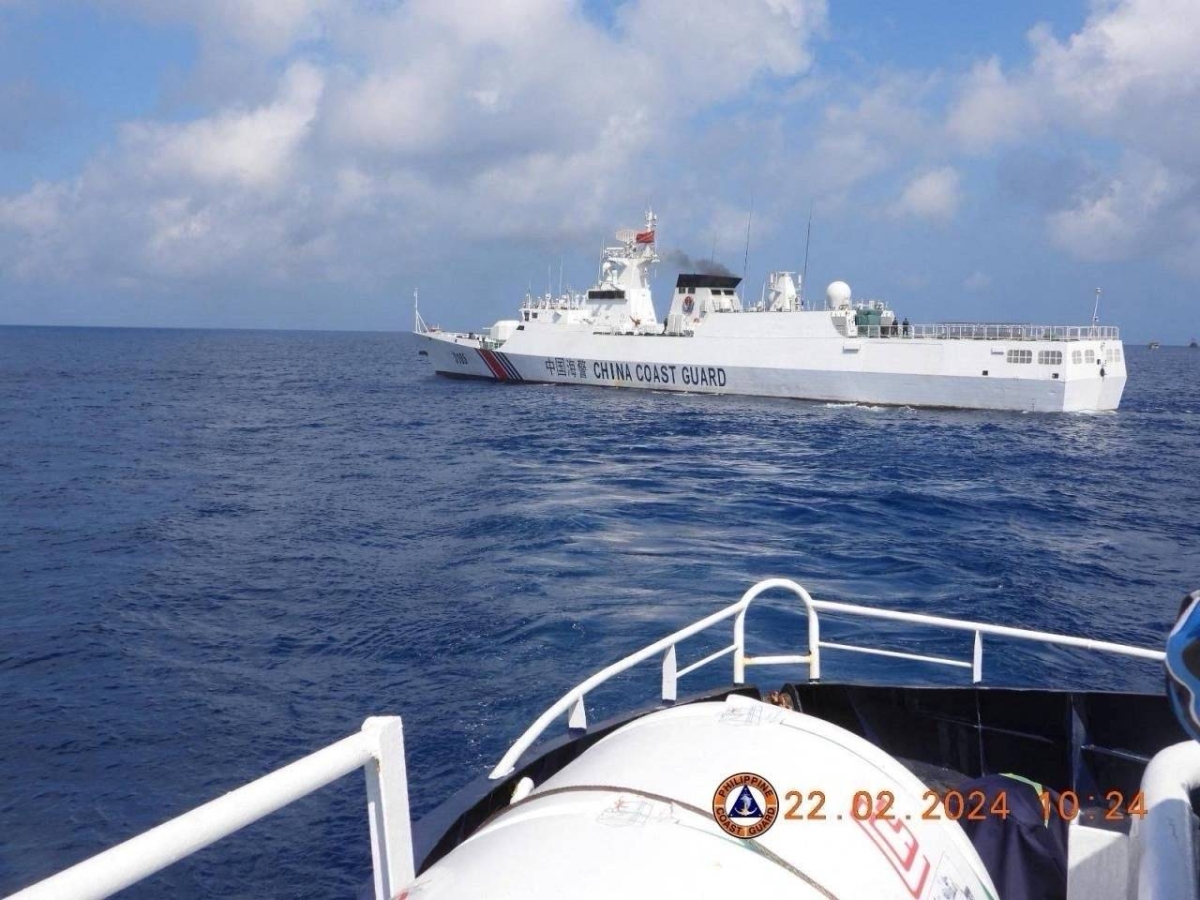Southeast Asian and Australian leaders have issued a warning against actions that “endanger peace” in the South China Sea, following recent confrontations between China and the Philippines in the disputed waters. The simmering tensions in this important trade corridor have the potential to escalate further, as Chinese boats in the Spratly Islands were accused of harassing Philippine vessels.
China’s claim of almost the entire South China Sea as its own, disregarding legal precedents and competing claims from Southeast Asian nations, has been a longstanding issue. The territorial dispute poses a significant security challenge in the region, and it was a prominent topic during the three-day summit between Australia and the 10-nation ASEAN bloc.
In a joint declaration, ASEAN members and Australia urged all countries to avoid unilateral actions that could jeopardize peace, security, and stability in the region. The statement emphasized the importance of maintaining the South China Sea as a sea of peace, stability, and prosperity.
At the start of the summit, Philippine Foreign Minister Enrique Manalo made a straightforward request to Beijing, stating, “Stop harassing us.” However, the following day, Chinese coast guard boats were accused of harassing a flotilla of Philippine ships on a resupply mission. The Philippine coast guard reported that the Chinese vessels were involved in two separate collisions and even used a water cannon against one of the resupply boats, causing damage to the control bridge.
The Association of Southeast Asian Nations (ASEAN) forum, which operates by consensus, has long struggled to make progress on the overlapping territorial claims in the South China Sea. The recent incidents highlight the ongoing challenges faced by ASEAN in resolving this complex issue.
It is important for all parties involved to exercise restraint and engage in peaceful dialogue to prevent further escalation of tensions. The South China Sea is a vital trade route and a significant source of resources for the countries in the region. Any disruption to the peace and stability of the area could have far-reaching consequences.
International law and the United Nations Convention on the Law of the Sea (UNCLOS) provide a framework for resolving territorial disputes. It is crucial for all nations to respect these legal principles and work towards a peaceful resolution through diplomacy and negotiations.
Efforts to maintain peace and stability in the South China Sea require the cooperation and commitment of all parties involved. ASEAN, as a regional organization, plays a crucial role in facilitating dialogue and fostering understanding among its member states and China.
While the territorial disputes in the South China Sea are complex and challenging, it is essential to find a peaceful and mutually acceptable solution that respects the rights and interests of all parties involved. This can only be achieved through constructive engagement, respect for international law, and a commitment to maintaining peace and stability in the region.
The recent warnings issued by Southeast Asian and Australian leaders serve as a reminder of the importance of resolving the South China Sea dispute peacefully and in a manner that promotes regional cooperation and prosperity. It is crucial for all nations to work together to ensure the long-term stability and security of this critical maritime area.
Source: The Manila Times








